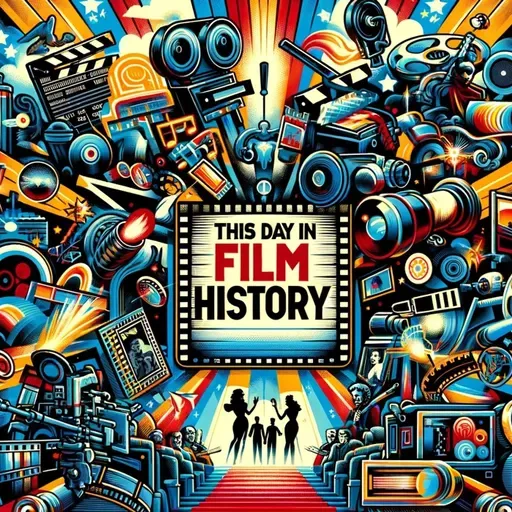
About
On September 29, 1907, one of the earliest and most influential short films in cinema history was released: "Ben-Hur". Directed by Canadian-American filmmaker Sidney Olcott for the Kalem Company, this ambitious 15-minute silent film was a loose adaptation of General Lew Wallace's 1880 novel "Ben-Hur: A Tale of the Christ".
The film was groundbreaking for its time, featuring a dramatic chariot race scene that was shot on a beach in New Jersey with local firemen and their horses. This sequence alone required 42 horses and over 100 extras, making it an epic undertaking for the early 20th century. The film's budget of $500 (equivalent to about $14,000 today) was considered substantial for the era.
"Ben-Hur" was a massive success, grossing over $1 million during its initial release. Its popularity led to the film being remade twice more in the silent era, in 1925 and 1927. However, the most famous adaptation of the novel would come in 1959, with William Wyler's Academy Award-winning epic starring Charlton Heston.
Despite its success, the 1907 "Ben-Hur" faced controversy when the author of the original novel, General Lew Wallace, and his publisher Harper & Brothers, sued Kalem for copyright infringement. The case made its way to the Supreme Court, which ruled in favor of Wallace and Harper & Brothers in 1911. This landmark decision set a significant precedent for motion picture copyright in the United States, establishing that filmmakers must obtain permission from the copyright holders before adapting their works.
The impact of the 1907 "Ben-Hur" on the film industry cannot be overstated. It demonstrated the potential for ambitious storytelling and spectacle in cinema, paving the way for the epic films that would follow in the decades to come. Its legal legacy also shaped the way filmmakers approached adaptations and intellectual property, making it a pivotal moment in both the artistic and business aspects of the industry.
Today, over a century later, the 1907 "Ben-Hur" remains a testament to the ingenuity and determination of early filmmakers, who pushed the boundaries of the medium and laid the foundation for the cinematic marvels we enjoy today.
Some great Deals https://amzn.to/49SJ3Qs
For more check out http://www.quietplease.ai
This content was created in partnership and with the help of Artificial Intelligence AI
The film was groundbreaking for its time, featuring a dramatic chariot race scene that was shot on a beach in New Jersey with local firemen and their horses. This sequence alone required 42 horses and over 100 extras, making it an epic undertaking for the early 20th century. The film's budget of $500 (equivalent to about $14,000 today) was considered substantial for the era.
"Ben-Hur" was a massive success, grossing over $1 million during its initial release. Its popularity led to the film being remade twice more in the silent era, in 1925 and 1927. However, the most famous adaptation of the novel would come in 1959, with William Wyler's Academy Award-winning epic starring Charlton Heston.
Despite its success, the 1907 "Ben-Hur" faced controversy when the author of the original novel, General Lew Wallace, and his publisher Harper & Brothers, sued Kalem for copyright infringement. The case made its way to the Supreme Court, which ruled in favor of Wallace and Harper & Brothers in 1911. This landmark decision set a significant precedent for motion picture copyright in the United States, establishing that filmmakers must obtain permission from the copyright holders before adapting their works.
The impact of the 1907 "Ben-Hur" on the film industry cannot be overstated. It demonstrated the potential for ambitious storytelling and spectacle in cinema, paving the way for the epic films that would follow in the decades to come. Its legal legacy also shaped the way filmmakers approached adaptations and intellectual property, making it a pivotal moment in both the artistic and business aspects of the industry.
Today, over a century later, the 1907 "Ben-Hur" remains a testament to the ingenuity and determination of early filmmakers, who pushed the boundaries of the medium and laid the foundation for the cinematic marvels we enjoy today.
Some great Deals https://amzn.to/49SJ3Qs
For more check out http://www.quietplease.ai
This content was created in partnership and with the help of Artificial Intelligence AI